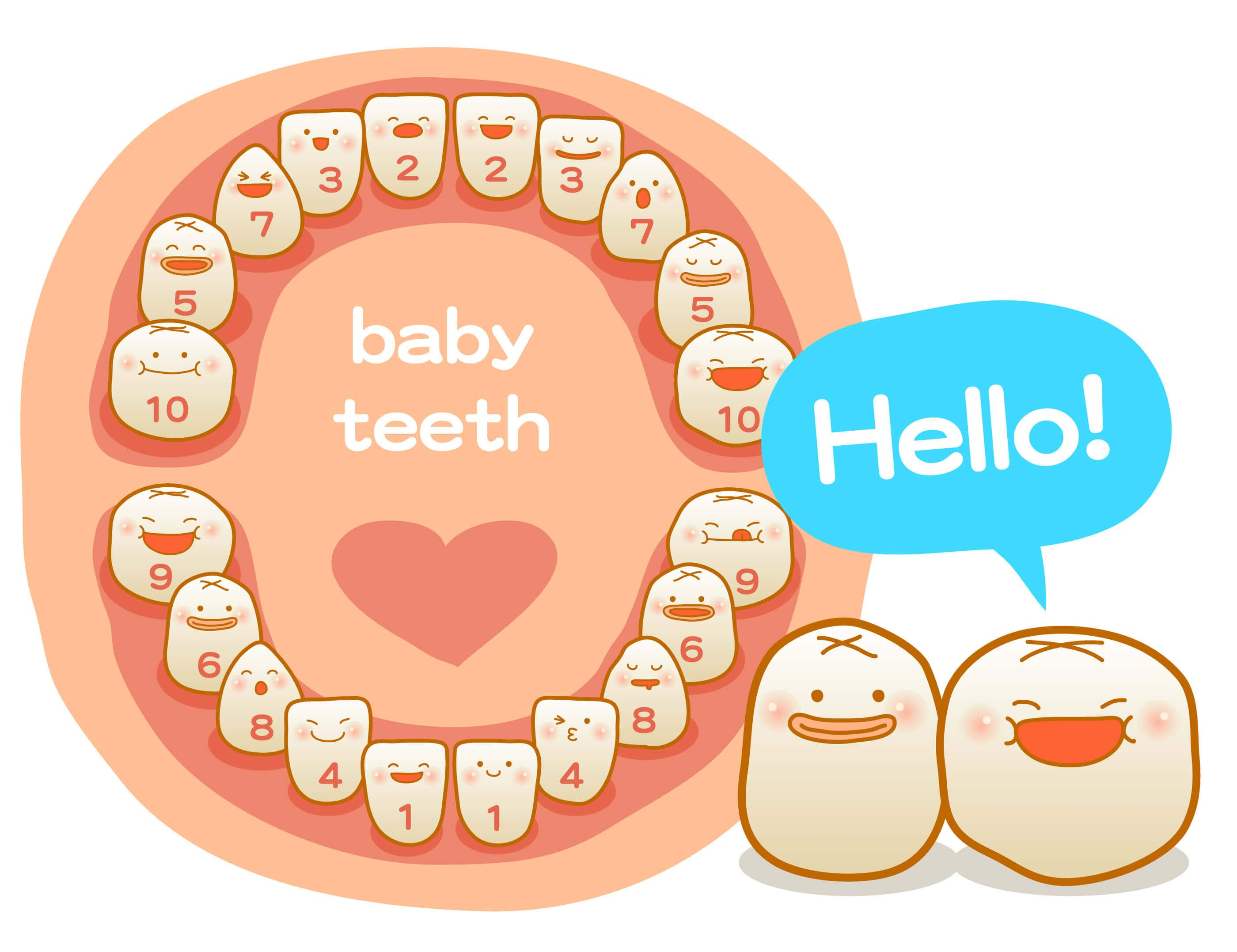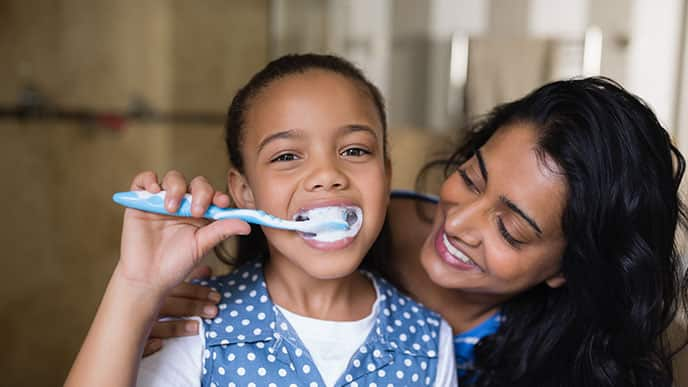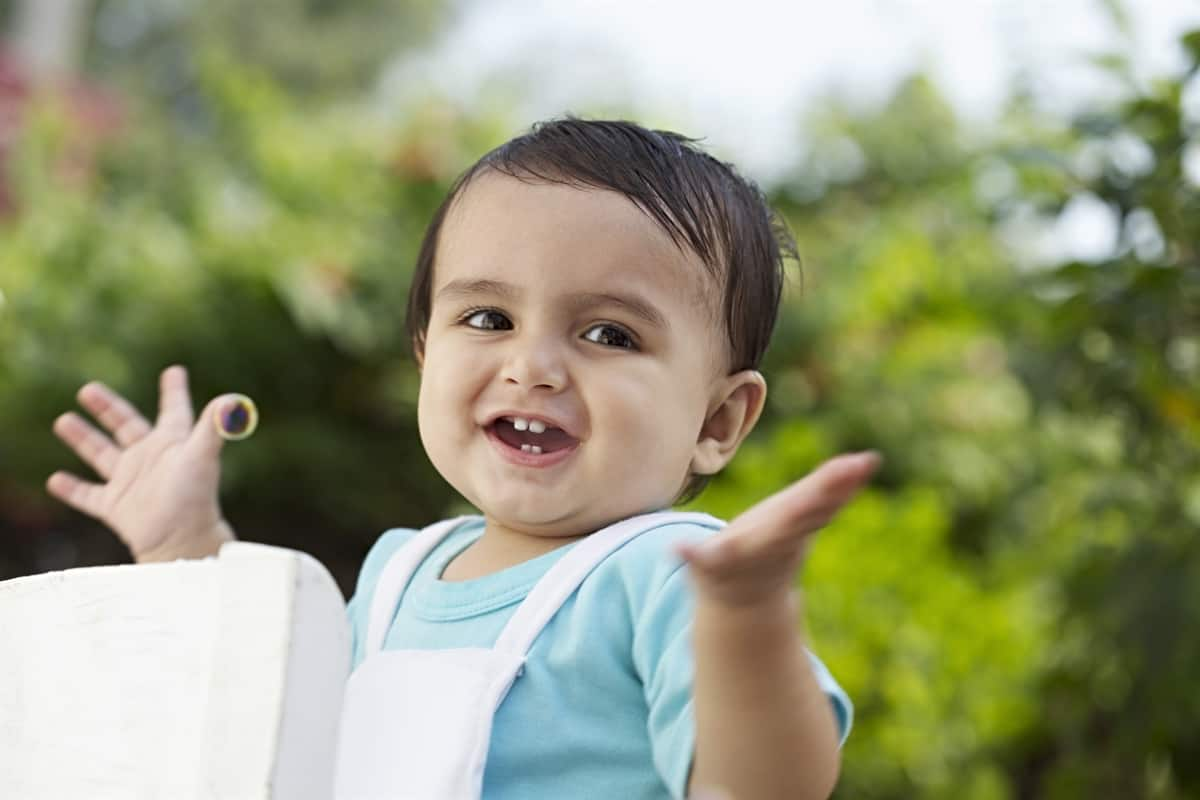What is a Baby Teeth Chart?
A baby teeth chart shows a child's tooth development by presenting the time to expect the onset of the first set of teeth. The months in which the baby's first tooth, commonly known as the baby teeth, primary teeth, or deciduous teeth, erupts and falls are marked in the baby teeth chart.
A baby is usually born with 20 baby (primary) teeth, which start to appear at about 6 months of age. They tend to fall out at various times during childhood. However, it is to be noted that the exact time when a tooth erupts and falls will largely vary from child to child. Therefore, the baby teeth chart is a rough guide you can follow to understand when your child may typically get their teeth.
The Stages of Baby Teeth Development
When a child is born, the teeth are already formed in the jaw, although not visible. The first tooth generally erupts through the gum line for most children around six months. But for some, it may happen earlier or later. However, these are not issues of immediate concern. While the exact timing may differ, the baby teeth order in which the baby teeth develop is almost the same.
Based on the different stages of baby teeth development on the tooth eruption chart provided by the Indian Dental Association, the lower and upper central incisors (the two front teeth) erupt between 6 months and 1 year of age. The upper and lower lateral incisors appear when 9 or 16 months old. The canine teeth appear between 16 and 23 months, the first molars between the 13th and 19th months, and the second molars between 2 and 2.5 years of age.
Importance of Monitoring Baby Teeth
Seeing baby teeth is quite exciting and thrilling. But with the excitement comes the responsibility to shape the child's oral health practices from an early age. It is crucial to monitor the baby teeth stages to provide the utmost care, as cavities can develop soon after your baby has teeth. Since baby teeth will eventually fall out, it might not seem like a big deal to take good care of them. However, these baby teeth pave the way for permanent teeth and the foundation of good oral health.
One may start caring for the baby’s teeth right from when the teething symptoms arise. Here are some tips that you may follow to care for your baby’s teeth:
Even before the baby’s teeth erupt, when they start showing the symptoms of teething, gently wipe the gums with a clean finger, a damp cloth, or a gauze pad after meals.
Avoid making the baby sleep with a milk bottle to reduce the chance of tooth decay.
Start brushing the baby’s teeth with a soft-bristled kids’ or infant toothbrush and water.
If you are looking for a kids’ toothbrush, consider using the Colgate Toothbrush for Kids, specially designed for children from 0 to 2 years of age. This will be handy for kids who are just familiar with brushing. The toothbrush has a small head, which makes it easy to access the baby’s mouth, and its extra-soft bristles help clean the tender teeth and gums.
Begin flossing the child’s teeth when they start touching each other.
By age two, incorporate kids’ toothpaste into their daily oral care routine and train them to brush properly.
For instance, try using Colgate Toothpaste for Kids (0-2 years). This kids’ toothpaste is 50% less abrasive. It helps clean your baby’s teeth without harming their delicate tooth enamel and additionally protects them from cavities, plaque, and bad breath. With zero artificial flavours, colours, sweeteners, or preservatives, it could be an excellent choice for your kids’ oral care.
Observe the child’s diet, as too many sugary foods and drinks can contribute to cavities.
Avoid using numbing gels and creams that help relieve teething pain.
Schedule the first dental appointment for your child before their first birthday to do a check-up and to see if the child’s teeth are developing properly.
How to Read a Baby Teeth Chart?
The baby teeth chart is divided into two main sections: upper teeth and lower teeth. Each section indicates the expected eruption time for each type of tooth, providing a comprehensive overview for parents to track their child’s teeth development. Here is a detailed breakdown of the baby teeth growth chart:
Upper Teeth Section:
Central Incisor: Erupts between 8 and 12 months.
Lateral Incisor: Erupts between 9 and 13 months.
Canine (Cuspid): Erupts between 16 and 22 months.
First Molar: Erupts between 13 and 19 months.
Second Molar: Erupts between 25 and 33 months.
Lower Teeth Section:
Central Incisor: Erupts between 6 and 10 months.
Lateral Incisor: Erupts between 10 and 16 months.
Canine (Cuspid): Erupts between 17 and 23 months.
First Molar: Erupts between 14 and 18 months.
Second Molar: Erupts between 23 and 31 months.
With the help of a baby teeth chart, you can easily compare the development of the top teeth and lower teeth side by side. You may use the teething chart to mark the dates on which the teeth appear so that it is easy to track the progress. Additionally, if there are any delays or concerns, you may use the chart as a reference point to get the proper medical advice from the paediatric dentist.
For parents who are dedicated to ensuring the best for their child's development, a baby teeth chart is a great tool, as it provides a clear idea of the types of teeth and the general timeline for their eruption. However, the timeline in the baby teeth chart is only a general guideline and may vary from child to child. It is important to properly care for the baby’s teeth as they give way to their later permanent adult teeth. Additionally, it is vital to consult a healthcare professional for proper diagnosis and care.
Frequently Asked Questions
1. What is the normal order of baby teeth?
Usually, the order in which the baby teeth appear is from the front to the back of the mouth. The first to arrive are the central incisors, and the last teeth to come in are the second molars. The full set of the child’s baby teeth usually appears until the child is almost three years old and largely depends on the child.
2. Which month baby teeth will come?
Teething can begin as early as 3 months. But mostly, the first tooth starts appearing through their gum line between 4 and 7 months old. The first teeth that appear are the central incisors the two bottom front teeth.
3. What age is too late for teeth?
Most children have teeth between 6 and 12 months, but some babies get them earlier or later. This is quite normal, as the timing is not that important. However, if the baby still has no teeth by the age of 18 months, it is advisable to see a paediatric dentist for a proper evaluation.
4. What causes babies to get their teeth early?
Babies can develop their teeth early due to various factors, including an adequate intake of vitamins and minerals like calcium and their health and growth rate. Babies who grow quickly in other areas of development may also develop their teeth earlier.
This article is intended to promote understanding of and knowledge about general oral health topics. It is not intended to be a substitute for professional advice, diagnosis or treatment. Always seek the advice of your dentist or other qualified healthcare provider with any questions you may have regarding a medical condition or treatment.
ORAL HEALTH QUIZ
What's behind your smile?
Take our Oral Health assessment to get the most from your oral care routine
ORAL HEALTH QUIZ
What's behind your smile?
Take our Oral Health assessment to get the most from your oral care routine








.jpg)




